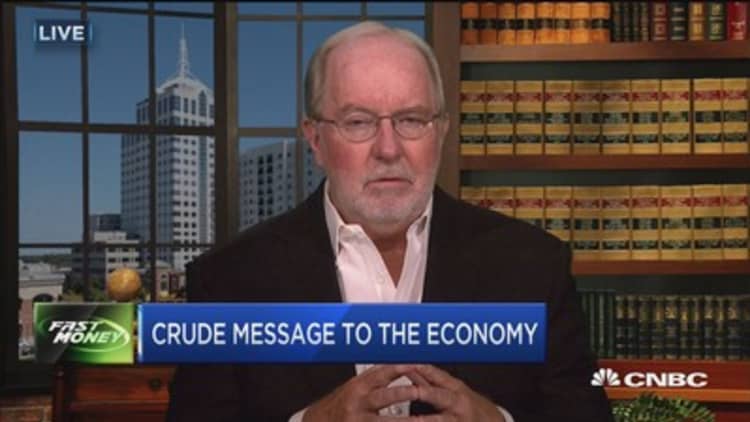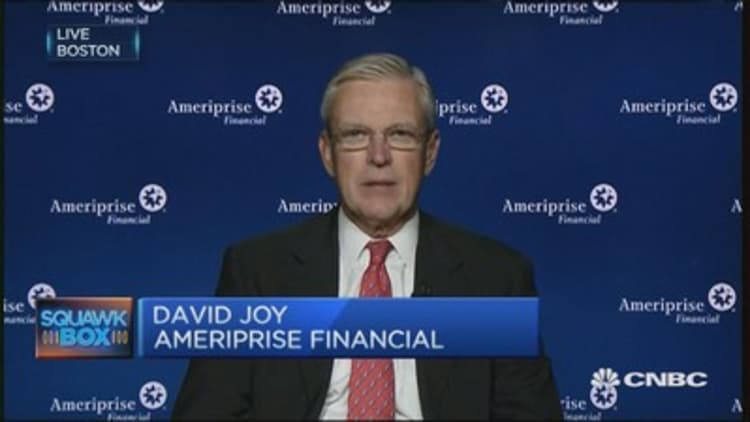Asian shares were mixed Thursday, with Samsung Electronics extending losses in reaction to what appeared to be a botched recall of its Galaxy Note 7 smartphone.
Samsung plunged 8.04 percent to 1,545,000 won ($1380.40) a share after news that the South Korean tech giant asked its global partners to stop all sales and exchanges of its flagship Galaxy Note 7 smartphone and advised users to switch their phones off.
There were reports at the weekend that devices given to customers to replace their fire-prone phones were also catching fire, and Samsung said on Monday that it had adjusted shipment volumes on Note 7s so it could focus on quality control.
More broadly, South Korea's Kospi finished down 1.21 percent, or 24.89 points, at 2,031.93.
In Japan, the ended up 0.98 percent, or 164.67, at 17,024.76, likely due to the overnight surge in oil prices and a weaker yen. The dollar/yen was up 0.28 percent at 103.87, from 102 levels last week.
Japanese airbag maker Takata fell 7.47 percent after Wall Street Journal reported late last week that the embattled firm was considering a U.S. bankruptcy filing in order to clear a path for an external investor to rescue the company.
Mainland Chinese markets were positive; the was up 0.59 percent, or 17.947 points, at 3,066.09, while the Shenzhen composite was up 0.507 percent, 10.303 points, at 2,043.686. In Hong Kong, the fell 1.47 percent during Asian afternoon trade.
Australia's ASX 200 closed up 0.08 percent, or 4.369 points, at 4,479.8, supported by a 2.33 percent rise in the energy subindex.
Australia's materials sector climbed 0.94 percent and major miners were also higher; BHP Billiton clocked a 1.71 percent gain, Rio Tinto rose 2.09 percent and Fortescue Metals Group was up 2.98 percent.
This was likely due to iron ore and steel futures in China bouncing back from multi-week lows on Monday, on hopes that Beijing would not curb property purchases, Reuters reported.
Business conditions in Australia also picked up in September, as companies reported higher sales, profits and a rise in forward orders, according to National Australia Bank's monthly survey.
In Singapore, the Monetary Authority of Singapore said it had ordered Swiss wealth management firm Falcon Private Bank to cease operations in Singapore, over lapses in the way it managed funds connected to the troubled Malaysian sovereign fund 1MDB.
The city-state's central bank had ordered the shutdown of another Swiss private bank, BSI, in May over similar braches, and recently charged people connected to the 1MDB probe. On Tuesday it also imposed fines on DBS Bank and UBS' Singapore branch for breaching anti-money laundering regulations.
Shares in major Singaporean banks fell in reaction to the news; DBS Bank was down 0.46 percent, OCBC Bank dipped 0.35 percent, while United Overseas Bank slipped 0.16 percent.



U.S. crude futures slid 0.45 percent at $51.13 a barrel in the Asia session, after settling at $51.60, while Brent futures dipped 0.49 percent at $52.89. Brent had settled up 2.3 percent at $43.73, after hitting a one-year high of $53.73.
Oil majors in the region were higher; Australia's Santos surged 3.96 percent, while Oil Search was up 3.38 percent, Japan's Inpex climbed 3.2 percent, and South Korea's S-Oil was up 3.35 percent.
In the U.S., crude prices jumped more than 3 percent after Russia said it was ready to join the Organization of the Petroleum Exporting Countries' (OPEC) output freeze deal, which was loosely agreed in September in a bid to cut the global supply overhang that has weighed on prices.
"The rally was purely sentiment-driven as the details of how this would actually work are still pretty thin on the ground, but given Russia is the biggest oil producer in the world any deal that gets them to cut back will be seen as a big positive for the oil market," Angus Nicholson, market analyst at IG, said in a Tuesday note.
prices were trading up 0.17 percent, recovering from earlier losses, at $1,261.50 an ounce, after two consecutive sessions of gains, as the dollar strengthened on increased expectations of the Federal Reserve raising rates in December.
The dollar index, which tracks the greenback against several currencies, was at 97.067 as of 2:43 pm HK/SIN and has been steadily strengthening since the start of October.
The pound remained under pressure on fears of a hard Brexit, with Cable trading at 1.2313 as of 2:43 pm HK/SIN, after briefly touching 1.2298.
Meanwhile, comments from the Reserve Bank of New Zealand about the need for further policy easing drove the down 0.83 percent to $0.7076 against the greenback, and drove the Australian dollar to $0.7561.
The Korean won had briefly fallen to as low as 1,120.43 per dollar, but was trading up to 1,119.15 won as of 2:46 pm HK/SIN.
India's markets are closed Tuesday for the Dasera public holiday.
Energy stocks led the U.S. markets' gains; the composite finished up 0.69 percent at 5,328.67, the closed up 0.49 percent at 18,329.04, and the S&P 500 ended 0.46 percent higher at 2,163.66.

